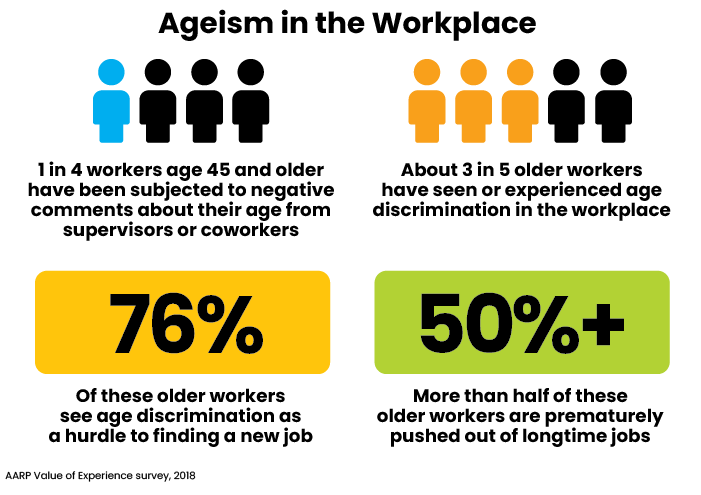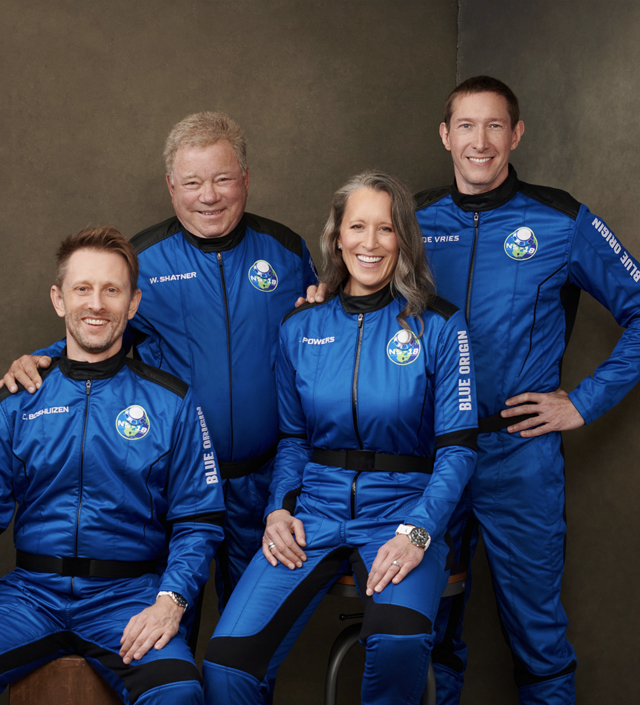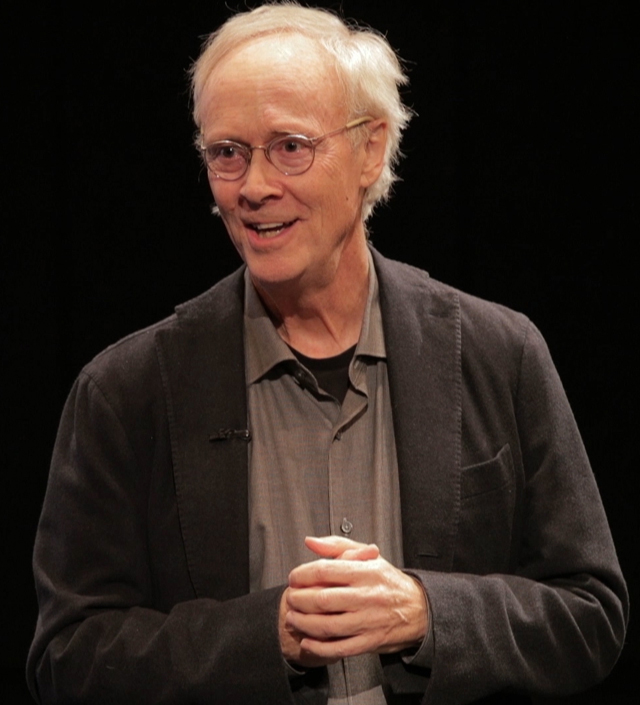The Blue Origin spaceflight bearing “Star Trek” legend William Shatner and three others not only pierced Earth’s atmosphere but probably some stereotypes along the way.
For Carrie Root, Ph.D., an author and workplace educator, the 90-year-old actor’s role on the mission should dash preconceptions about older generations in the workplace.
“The bottom line is that stereotypes are just another form of prejudice. Our challenge is to know when we are biased and to take the time to know the individual rather than casting judgments from what we see and assume. Understanding the difference between the generations, and appreciating what each can offer the other, is helpful when addressing multigenerational workplace issues,” she says.
Root, whose CV notes she has crossed the Pacific on an aircraft carrier and has twice hiked across the Grand Canyon, is the author of “The Other Soft Skill: How to Solve Workplace Challenges with Generational Intelligence” She is the founder and CEO of Alpha UMi, an education consulting firm based in Florida that develops professional-development curricula. Root had an engineering career working for large and small businesses, followed by more than two decades consulting as a high-level troubleshooter for the U.S. Navy.
Grim Statistics
For Root, who helps companies overcome challenges in building multigenerational teams, the Blue Origin mission crystallized issues surrounding aging and the workplace.
A 2018 AARP survey, for example, found that nearly one in four workers age 45 and older have been subjected to negative comments about their age from supervisors or coworkers. About three in five older workers have seen or experienced age discrimination in the workplace. And 76% of these older workers see age discrimination as a hurdle to finding a new job. Another report found that more than half of these older workers are prematurely pushed out of longtime jobs and 90% of them never earn as much again.
 An accompanying AARP article stated that the Equal Employment Opportunity Commission concluded that even though 50 years had passed since Congress outlawed the practice, “age discrimination remains a significant and costly problem for workers, their families and our economy.”
An accompanying AARP article stated that the Equal Employment Opportunity Commission concluded that even though 50 years had passed since Congress outlawed the practice, “age discrimination remains a significant and costly problem for workers, their families and our economy.”
“Captain Kirk’s” Outlook
However, Shatner, who portrayed “Star Trek’s” Captain Kirk over a span of nearly 30 years, seemed to de-emphasize his age in favor of a focus on the future. In a CBS Entertainment Tonight interview, Shatner addressed his being the oldest person ever in space: He said he “can’t stand” being reminded of that fact.
“It reminded me of the death facing me because of my age … But also how to protect you in the years to come, and my children, and my children’s children,” he said. “That’s what’s critical.”
He expressed awe and profound appreciation of the planet in comments to Blue Origin founder Jeff Bezos after the mission was completed:
“I mean, the little things, the weightlessness, and to see the blue color whip by and now you’re staring into blackness. That’s the thing. This covering of blue is this sheet, this blanket, this comforter of blue that we have around us. We think ‘oh, that’s blue sky’ and suddenly you shoot through it all of a sudden, like you whip a sheet off you when you’re asleep, and you’re looking into blackness — into black ugliness. And you look down, there’s the blue down there, and the black up there, and there is Mother Earth and comfort and – is there death? Is that the way death is?”
When contacted by Rethinking65, Root shared her thoughts on Shatner’s mission, on the multigenerational workplace, and on the wisdom present among old and young alike:
Patricia McDaniel: Did you watch the mission and have any fears for William Shatner being able to handle the physical pressures of the program at his age?
Root: Absolutely I watched it! The emotions I felt watching William Shatner head into space were anything but fear for him. I don’t think of Mr. Shatner as an aged individual. Even at 90 years old, there is a vitality that even the Gs [gravitational forces] he pulled exiting Earth’s gravity couldn’t shake from him. I was excited for him and a bit envious of his good fortune for being asked to take that flight.
I also believed that the last thing Jeff Bezos would want is to be labeled as “the guy who killed Capt. Kirk.” So I assumed the physical stamina required for that flight would not exceed William Shatner’s ability.
McDaniel: Many remarks made in news coverage about Shatner’s participation referred to how “good” he looked. Is that implicitly ageist in that it is not expected someone at 90 and presumably 80 or 70 or even 60 to “look good” – and hence not perform well at a job?
Root: That’s an interesting question, and difficult to answer not knowing the context of the statement. However, William Shatner has maintained his physique across the decades. I would say that “looking good” is not as an ageist statement unless the expectation was that he wouldn’t look good because of his age. But this is William Shatner we are writing about. William Shatner always looks good.
McDaniel: William Shatner seemed to me to be very Capt. Kirk-esque in his insightful comments after he returned from the flight — his awe, his perception of the Earth covered in the “blue comforter,” and his seeing it as a call to action to protect the planet. Is that the sort of wisdom you believe can often be most likely found in an older person? Do you think our current workplace responds to that sort of thoughtfulness in a more tech-based, remote-based environment?
Root: William Shatner was born into a world where commercial aviation was just ramping up, planes had propellers and the moon was a romantic beacon in the sky. He was an adult when Sputnik flew overhead. He had the opportunity to be a Federation Starship Captain when the Cold War was in full force, and the U.S. was working to put a man on the moon.
Fast forward to [the Blue Origin trip] this week, when he had the opportunity to boldly go where no 90-year-old had gone before — to space and to look back on our mother planet at a time when climate change is getting real attention, when biodiversity is being threatened, where our population growth is no longer supportable. I believe that his lifetime of experience and opportunity probably gives him a perspective to appreciate the world we inhabit, to recognize its fragility. His comment that the atmosphere was as thin as your skin really got me thinking.
That leads up to my answer to your first question: I believe that William Shatner has a set of life experiences that make his observations on his space flight unique to him and of value to the rest of us. Face it, to remember the world pre-space flight requires that you belong to an older generation. That doesn’t mean that excitement and profound thoughts are only available to older generations, but it does qualify Mr. Shatner’s perspective.
In answer to your second question, I often observe younger generations tend to turn to internet sources to find that experience, rather than seeking it out from those they know in a more personal way. The advantage of this is access to a much larger body of knowledge when they want it. The disadvantage is having to qualify the speaker — are they really an authoritative source?
McDaniel: Can you provide some context through recent statistics or trends or your own observations on ageism: Is it improving in the workplace or not? Referencing the AARP article above, it seems the responses of many people were similar: They could not get past screening algorithms — and when they did meet a prospective employer in person, they often never had a return meeting.
Root: You have highlighted a problem for people wanting to enter or re-enter the workforce later in life. This has been a challenge for a long time. And while we are discussing ageism in this day and age, you could likely have a very similar discussion swapping racism or sexism for ageism in decades past.
In the past, as the workplace changed to incorporate more people of color and more women, the barriers to employment for those individuals began to fade. Fast forward to today.
With the abolishment of a mandatory retirement age (except for pilots, air traffic controllers, some judges and some federal positions) we have seen a steady increase in the number of individuals who work well into their 70s and even beyond.
As our work population continues to grow in age, and competition for workers stays strong, that boundary will also fade due to need and the recognition that older workers can bring a lot of positive value through their experience and perspective.
McDaniel: Do you have any advice for those seeking professional jobs or even minimum wage jobs as they age? How should they fashion a resume and present themselves?
Root: On the side of the people seeking employment, I would recommend emphasizing situations that demonstrate agility, willingness to learn, adaptability and tech savvy. Baby boomers and Gen Xers seeking employment need to recognize that reaching out for that new job is more than sending out resumes. They need to define their personal brands, establish their social media footprint, comment and post relevant content for the jobs they seek. They should seek refresher programs that provide digital credentialing in relevant areas for the positions they seek. And they need to network.
McDaniel: Is there a resource you can recommend for older workers to have a sense of their rights and protections as an employee?
The federal Equal Employment Opportunity Commission is alive and well and a great source of information related to age discrimination. See Facts About Age Discrimination | U.S. Equal Employment Opportunity Commission.
McDaniel: How can financial advisors help their clients with guidance about ageism or other later career issues to protect themselves to the extent that is possible?
Root: I will speak to this one from a personal perspective. I am not a financial advisor, but I have one whom I spoke to this morning. We spoke on this specific topic.
According to Rich Lundahl, a financial advisor with Edward Jones, he supports his older clients by more than just advising their investments. He seeks to maintain their quality of life through managing and advising for financial security, maintaining good health (exercise and access to good medical care), emotional security (connections with friends and family) and helping them continue to define a purpose in life.
I believe that these are all important to achieving a “good life,” and being able to “look good” like William Shatner when he exited the Blue Origin’s rocket New Shepard.
Patricia McDaniel is a freelance writer and editor and former journalist with Gannett’s New Jersey newspapers. She can be reached at pmcd5353@gmail.com.







